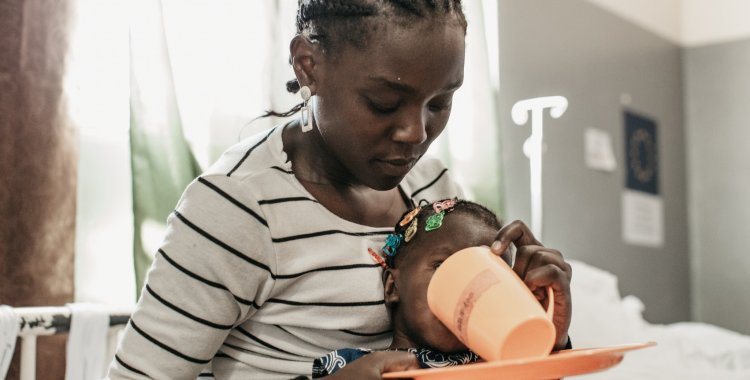The results of this screening, carried out over the last three weeks, indicate that "the situation is worrying", according to the NGO.
"The drought in the south of Angola has been a reality for at least three decades. Unpredictable rainfall has led thousands of families dedicated to agriculture and pastoralism to face the challenge of putting food on the table", says in a note consulted this Tuesday by Lusa.
The children diagnosed, in five municipalities, are between six months and five years old, the organization said, stressing that, as part of the immediate action plan, cases of severe acute malnutrition were referred for medical monitoring in health units.
Additionally, more than 6,700 boxes of RUSF (ready-to-use-supplementary-food) therapeutic food sachets are being distributed to those diagnosed with moderate acute malnutrition, providing coverage, for the next two months alone, to around 14,000 children.
"Families also receive the Premix food supplement, a mixture of soy and corn flour, to reinforce meals at home. However, with the closure of projects involving the nutrition component in the region, local government intervention alone will not be sufficient to increase household access to food or treatment for children with malnutrition", adds World Vision.
Since 1989, World Vision has been working in the southern region of Angola to help alleviate the difficulties caused by water scarcity which, year after year, has been worsening and compromising harvests, adding to the challenge of pests, which, in recent years, they have frequently attacked plantations.
Also regarding the drought in the south of the country, the projects and programs coordinator of the Associação Construindo Comunidades (ACC), Cecília Capassi, speaking to Lusa, considered the situation to be serious, with young people migrating to other locations and the elderly being abandoned to their fate, with reports of deaths.
"We entered Namibia and the Angolans are there, humiliated, without a voice, without a place and without a homeland. They were welcomed, but when a ruler from Angola went there, they dismantled the camp. There is this testimony there, we went there in February [and we found out ] that many were forcibly repatriated and others fled to Windhoek", highlighted Cecília Capassi, also reporting that, due to language limitations, some Angolans become shepherds for Namibian farmers.







